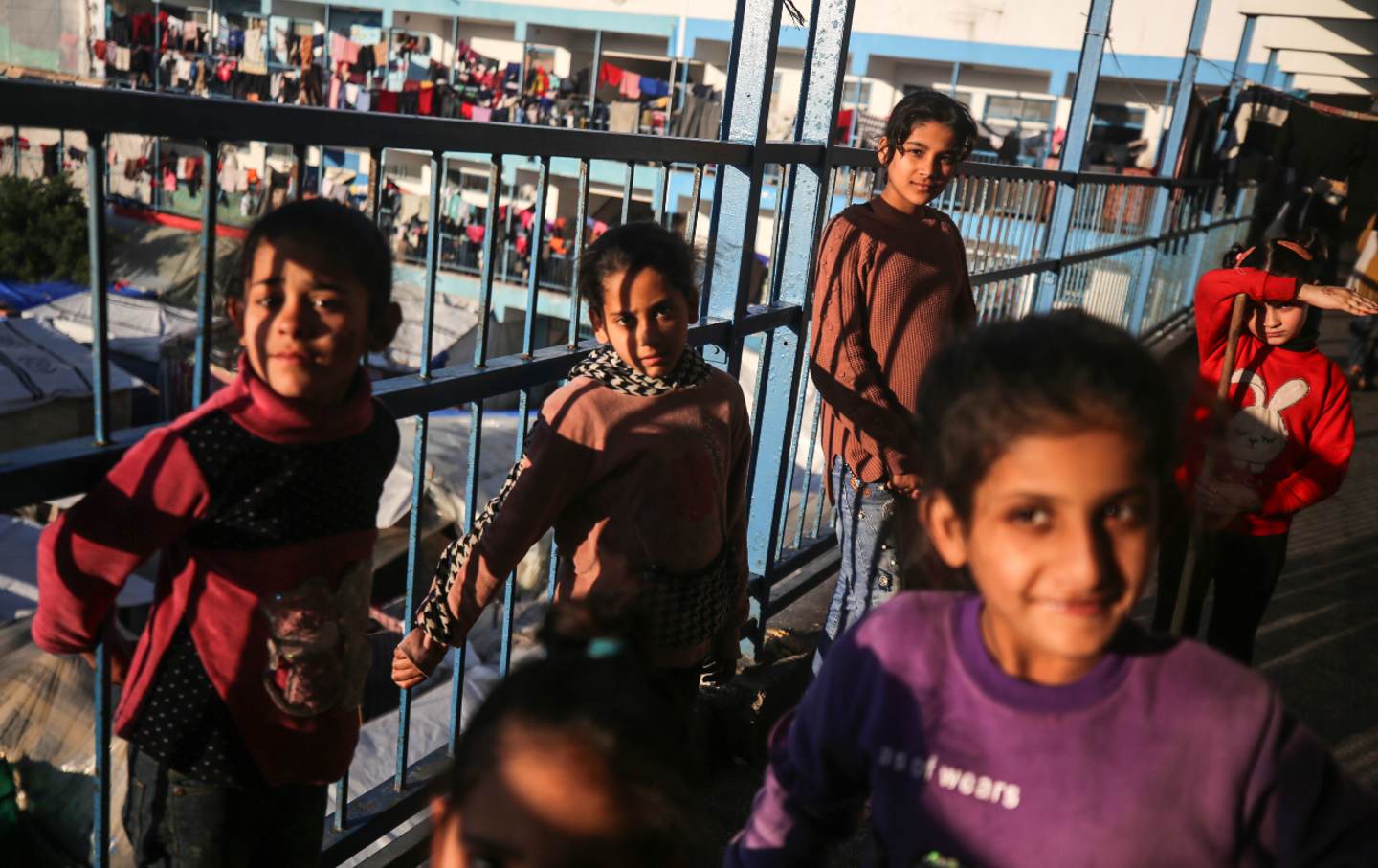Following Washington’s lead, key US allies have cut funding for the United Nations Relief Works Agency for Palestine—making them all complicit in genocide.

When the 17 judges of the International Court of Justice issued their near-unanimous ruling on January 26, making clear that Israel’s actions in Gaza plausibly constituted genocide, they asserted the legitimacy of the world’s most influential judicial body to hold Israel provisionally accountable for those violations.
Israel was having none of it.
Just hours after the court’s decision was announced in The Hague, Israel went public with an unsubstantiated allegation that 12 Gazan employees of the UN’s Relief Works Agency, the primary body responsible for providing humanitarian support to Palestine refugees, supposedly were tied to Hamas and may have played some role in the attack on Israel on October 7. (In fact, the names of all UNRWA employees had been provided to Israel earlier in the year for Tel Aviv’s vetting—and Israel made no complaints.) Despite the lack of evidence, UNRWA—presumably in an effort to avoid a dangerous collective punishment by Israel’s allies—immediately announced that it was firing the named employees (two were confirmed dead) and the UN launched two separate investigations.
Not wanting to wait a moment, however, Washington announced on the same day that it was cutting its entire aid allocation to UNRWA, despite the agency’s irreplaceable role in getting desperately needed aid into Gaza. A few hours later, key US allies announced that they were joining Washington in cutting aid: the United Kingdom, Canada, Australia, Germany, Italy, the Netherlands, and new NATO-member Finland. The United States provides by far the largest annual donation available to the UN agency (although, at just over $300 million, it’s a pittance compared to the almost $4 billion the US sends to the Israeli military every year). And combined with the at least 15 countries that eventually joined the US cuts, the impact on UNRWA’s ability to provide even the most minimal of basic services is enormous. With those services destroyed by Israel’s war, this US role in further undermining Palestinians’ access to water, food, medicine, shelter, and fuel makes Washington—again —directly complicit in Israel’s genocide.
More
Then things got worse. Two weeks later, on February 9, Israel launched another PR attack on UNRWA, this time claiming that a tunnel under the agency’s headquarters in Gaza City had been used by Hamas—variously identified as a communications center, a command center or a data center. Again no evidence was made public, but, among other responses, the US Senate bill authorizing $14 billion for unconditional aid to the Israeli military stated explicitly that none of the bill’s separate humanitarian aid (for conflict zones around the world) could go to UNRWA. US officials themselves had argued earlier that UNRWA was “the only game in town” in terms of getting any significant aid into Gaza, but the bill still imposed a permanent ban on US funding. (If passed by the House, it would even prevent UNRWA from receiving a tiny $300,000 grant that had already been approved.)
The impact of the aid cuts on the already threatened lives of 2.3 million displaced Gazans, as well as millions more Palestinian refugees in the West Bank, Jordan, Lebanon, and Syria, can hardly be overstated. US officials who suggested redirection of UNRWA funds to UNICEF and the World Food Program only showed their ignorance of conditions on the ground, and the capacities of aid organizations. UNICEF and WFP together have less than 70 staff on the ground in Gaza; UNRWA has over 13,000 providing, for more than half a century, all the services that ordinarily would be provided by a government civil service. Most of Gaza’s doctors, nurses, teachers, engineers, street sweepers are UNRWA employees. Without UNRWA, all the UN agencies and NGOs would be unable to carry out their crucial work. Thousands, probably tens of thousands more civilians—especially babies, children, pregnant women, and the elderly—will die.
Current Issue
And there is another price to be paid as well. Along with its critical role in lifesaving humanitarian assistance, UNRWA remains the only international agency in the UN system whose mandate includes protection of the rights of Palestinians as refugees. The work of UNRWA, from its creation in 1949, was designed to continue until Palestinian refugees achieved “a just and durable solution to their plight” on the basis of all the human rights and refugee rights to which they are entitled.
That means that UNRWA’s work is unfinished until the Palestinian refugees’ right to return to their homes, guaranteed by international law, is made real. Refugees—dispossessed in 1948 of their homes and land from what is now southern Israel—make up 70 percent of Gaza’s population. Without UNRWA, their right of return, indeed the very existence of Palestinians as a refugee community, is threatened with erasure. And that—creating conditions that make the survival of all or part of a threatened group as a group impossible—is part of the very definition of genocide.
No wonder Israel is so eager to get rid of UNRWA. And for the same reason, no wonder the defense of UNRWA remains such a critical factor in our continuing work for an immediate cease-fire and Palestinian access to unhindered humanitarian assistance in Gaza.
Leave a Reply